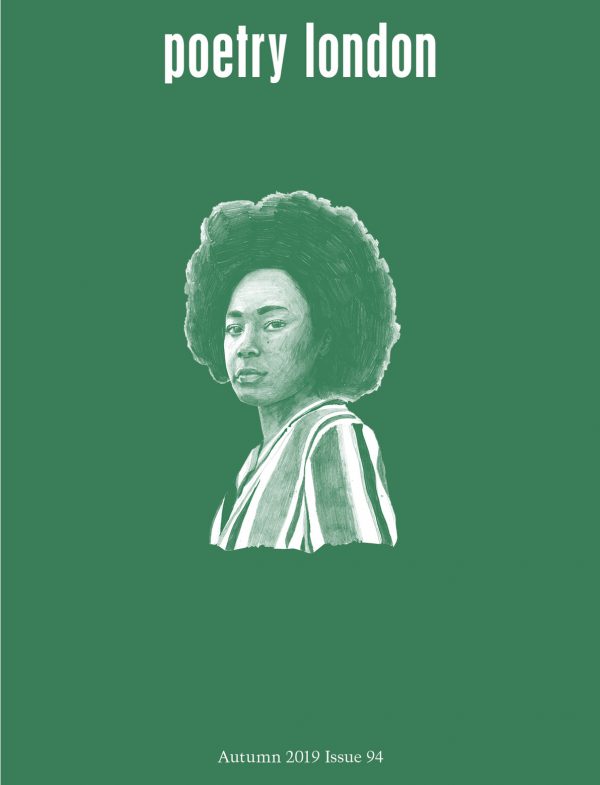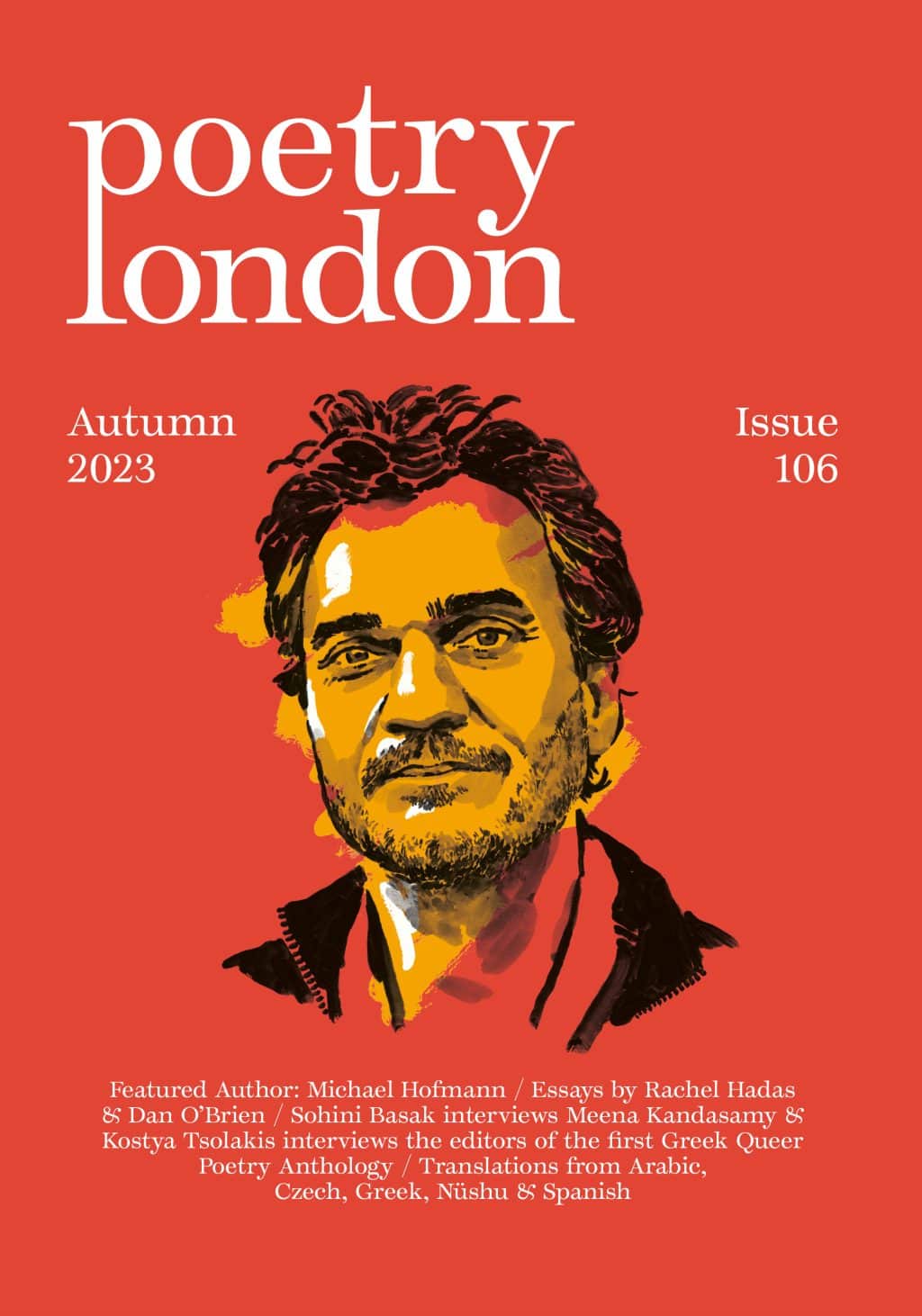‘My words are buried deep’
Kate Potts reads three collections that focus on reclaimed and reimagined voices
Jane Yeh Discipline Carcanet £9.99 Julia Copus Girlhood Faber £14.99 J O Morgan Assurances Cape £10.00
Jane Yeh’s third collection, Discipline, employs formal and structural games and constraints to explore and rework ideas around representation. The collection begins with a deft portrait of cabaret and drag artist Joey Arias in ‘A Short History of Style’: ‘Mistakes come back to her // Like wrong notes, a clarinet / Of echoes.’ This performance is ripe with challenge and ambiguity, but also full of integrity and bluesy sorrow:
The catch In her voice like a rusty key Turned. A hundred Nights blurred together Like an ink blot.
The poem frames a collection in which Yeh plays with and critiques visual and artistic conventions around the male gaze, and the idea of the female body as aesthetic performance. More impressionistic than Emily Berry’s ‘A Short Guide to Corseting’ from her debut collection, Dear Boy, but similar in its concerns, the title poem ‘Discipline’ presents a body/woman as a work of careful, perhaps dangerous, artifice:
Her Secrets play on a continuous loop, Like a B-movie. On The reverse: a blank surface Painted over – another girl Blotted out.
Here, as throughout this collection, there’s an avoidance and rejection of the relatively straightforward, unmediated ‘lyric I’ in favour of the third person, the collective (‘we’), dramatic monologue, and extra helpings of irony and sass. These are poems that co-opt and remake everyday form: book reviews, film scenes, lists, and a series of ‘A Short History of…’ poems and ‘Self Portrait as…’ poems. In ‘A Short History of Migration’, a chorus of migrants details the variety of its experience in a series of deadpan declarations: ‘We attended bake sales with a suspicious degree of fervour. / We hindered our children with violins, bad haircuts, and diplomas.’ The subjective specificity of these ‘history’ poems contrasts neatly with the glib ‘objectivity’ of the titles. With a nod to Frank O’Hara’s ‘Why I Am Not a Painter’, ‘Why I Am Not a Sculpture’ deftly and comically sends up the decadence and whiteness of a particular European cultural aesthetic through the image of a Bernini statue ‘Lounging in a climate-controlled museum in Rome’. ‘To be so white and glossy / is unimaginable’, it continues; ‘It is exhausting trying to be so inanimate / and desirable’. This poem benefits from the unexpected surrealness of its imagery:
I have often held my arms aloft
As when catching a carelessly thrown baby or pointing at two
meteors at the
same time
There are places – often where the poetry uses a list structure to evoke fantastical scenes – where surreal quips and non sequiturs, in quick succession, give the poetry a fractured, unanchored feel. In ‘Utopian Villas’ there are singing oysters and ‘a metronome the colour of Sacre- Coeur’. While I admire the imaginative risk of these poems, this archness feels more effective when coupled with more direct, less surreal subject-matter – as in the marvellous ‘Self Portrait as a Spinster’: ‘To be unloved is like listening to a progress report on courgettes – for months.’ Here, the speaker’s emotional sincerity is artfully undercut with comedy:
It was awful to be unloved, like having an embarrassing disease. (Somewhere on the moon, a Clanger emits a distant, mournful chirp.)
Yeh’s use of irony and the surreal is always, at its best, counterbalanced with emotional weight. Like Chelsey Minnis, she uses the interplay of imagery to upset and interrogate cultural hierarchies. The virtuoso, often slapstick, performance of these poems doesn’t belie the seriousness, or the razor-sharp vision, of this collection.
Like Discipline, Julia Copus’s Girlhood is also concerned with the ethics and aesthetics of representation. Here, though, the central concerns are with memory, trauma, and the passing of time. The imagery is often startlingly cinematic. As in Copus’s extraordinary specular poem ‘The Back Seat of My Mother’s Car’, these poems often take us back to relive, reframe and rework specific moments in time – as in ‘Wolfman Jack’, ‘Any Ordinary Morning’, ‘Creation Myth’, ‘So Long’ and also ‘A Thing Once it has Happened’ – where the moments of trauma are made conspicuous by their absence. There are flashbacks and forwards, and engagements with the slipperiness of memory and narrative. Copus uses a determinedly everyday vocabulary to bring precise historical detail and a broad range of cultural reference points into her conjuring of the past. The children’s TV programme Fingerbobs contends with ‘the howl of Wolfman Jack in the skin care advert’ (‘Wolfman Jack’), as well as cling film, Thresher, Comet, Woolworths, Phones4U, Blockbuster…
‘A Thing Once it has Happened’, which deals with a relationship between a student and tutor, begins ‘somewhere other than at the beginning’ (as many of Copus’s stories do). The narrative is told in three stages: ‘During’, ‘Before’, and ‘After’. There are a variety of framing devices at play here. The poem begins with ‘the student’ described in third person, shifting to a discussion of boundaries via the Greek pantheon and Martha Nussbaum:
Martha Nussbaum calls such blurring violability – where an object (a person, say) is treated as lacking in boundary-integrity and viewed accordingly as something it is permissible to break up, smash, break into.
As in the work of Anne Carson or Maggie Nelson, these shifts in framing work, like lenses, to intensify the reader’s focus, and to evoke the shifts of a mind remembering:
Ahead walks the tutor. The me that was then follows, watching from the dark theatre of my skull.
In ‘Before’ the voices are multiple: a narrative interrogated by itself, and interspersed with a heart-breaking voice that seems to speak out of the past: ‘I want to go back, out of the bad stories […] It’s hard to separate one time from the others.’ But there’s also a self-conscious discussion of cinematic aesthetics that displays a deep unease at this retelling: ‘We’d like to find a way […] of extending this scene […] the faintest stirring of strings / swells then yields abruptly to a single voice.’
This collection’s specular poem, ‘The Great Unburned’, could function as a manifesto for the book, its witches travelling fearlessly ‘back to the place where you thought we’d been silenced’. It’s a joyful and effective incantation, though the structure works less well here than in specular poems focusing on precise moments in time. The part of this book that realises Girlhood’s vision most fully is, for me, the second half – in which Copus reimagines the relationship between trainee psychiatrist and psychoanalyst Jacques Lacan and Marguerite Pantaine, whose case Lacan used as the cornerstone for his doctoral dissertation. Lacan’s officious, formal, critical voice in ‘Casebook I’ (‘she harbours / grandiose ambitions. Delusional, certainly’) shifts to become more conversational and empathetic, but he retains a patriarchal deafness to vital elements of her experience. Marguerite, meanwhile, is reluctant to offer up her grief, and keenly aware of the power dynamics at play, of his freedom and her own confinement:
but my words are buried deep and if they rose each one would fail, the moment it emerged from the dark of the throat [...]
As the narrator explains, Marguerite is a puzzle for Lacan:
it would please him no end
to gather the bits from her like fine bone china
so damaged he alone could piece them together [...]
(‘Dayroom I’)
Although talking brings, eventually, some relief to Marguerite, we’re left in no doubt as to Lacan’s exploitation of her. Copus tells it slant through the sequence’s final poem, ‘How to Eat an Ortolan’: ‘Under the rib cage, a pea-sized heart, a lung / release their fabled liquor on his tongue.’ Deftly, sensitively told, this sequence attempts to return Marguerite’s voice to her, as well as her determined, precious silences. It’s an extraordinary feat.
JO Morgan’s Assurances – winner of this year’s Costa Poetry Prize – is another impressive feat of multiple reimagined voices, a long work of ‘versed and unversed’ passages in which Morgan beautifully evokes the absurdity of the nuclear deterrent. The book, set in the 1950s, begins with stanzas of truncated newspeak, political language which skirts around the reality of nuclear war:
Because if the enemy did. If the enemy chose. If, at some point, at length, the enemy. Because whatever they might send our way. It wouldn’t take long for it to. From the precise moment of notification. It wouldn’t be It would soon be. It wouldn’t.
The distinct voices in Assurances are not named, but implied through different uses of form and register: the spy, the pilot, radio voices, the voice of the bomb. There’s careful formal dexterity here (blank verse, tetrameter, prose, and so on) and descriptive and discursive passages are interspersed with enough narrative to give shape to the whole – particularly through the story of a (female) spy. Morgan imagines, repeatedly, the experience of time between the radio announcement of the impending bomb and the moment of destruction:
She lingers in the moonlit shade of convenient trees. Their purity of airs. Her slow deep breathing. Waiting while the birds start up their dark cacophony... Now here the everything-she-is stands ready for this culmination to the scheme so long ago set on its course, for all the quickness in her to be wrenched out, to leave her egg-blown. (Is this shell, this dusty husk, what we’ve been dreaming of?)
There’s fascinating technical detail, and crushing realism, inAssurances’ details about the Airborne Nuclear Deterrent:
There’s not really any survival gear to speak of, not on board. No flimsy A-frame tent. No cooking pots. Not even basic rations. Little point in loading up supplies when a full-blown attack won’t leave you much to live for.
Morgan often focuses on ideas and images of communication, its possibilities for intimacy, obfuscation and violence: ‘And in its airy belly: rank of bulky
electronics./ Radio-transceivers. Decryption-engines. Signal-jammers.’ In fragmented, eavesdropped radio voices there’s a reaching towards intimacy: ‘Can get lonely but when we’re talking when I / your voice and it’s just a voice I don’t I’m not’. The work shifts easily from abstract, philosophical discussion to a very physical, everyday reality.
There’s an anachronistic and rather heavy-handed moment where our spy, in darkness, ‘reaches out a hand and blindly / drops another bomb into the bath’. However, Morgan’s final pages find the woman engaged in a physical embrace that brings us back, once more, to intimacy – and a sense of both beauty and terror:
(How close things draw together just to split. How full an understanding of the ways in which our worlds may pull apart. If everything we strove for led to this how could it be undone with one embrace?)
Kate Potts teaches creative writing at Middlesex University and Royal Holloway. Her latest poetry collection, Feral(Bloodaxe) is a PBS recommendation.


